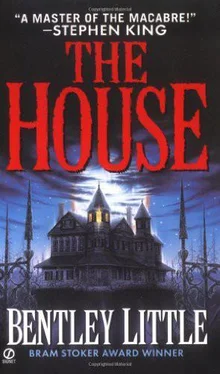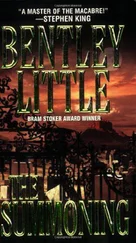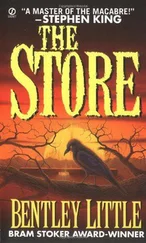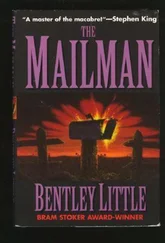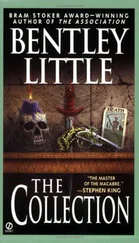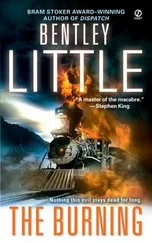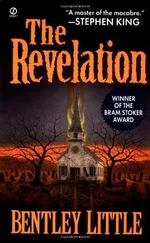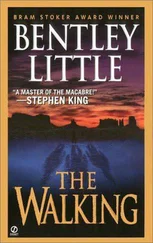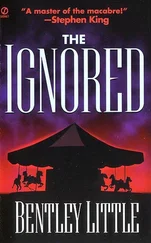If that didn't work, he'd start with the basement and work his way up.
He walked out of the sitting room into the entryway.
The front door was still locked. Not just locked. Frozen.
The latch on the handle did not rattle, and there was not even the slightest give as he tried to yank the door open.
Billinghamwas in the kitchen, humming to himself, some song that nagged onStormy's brain with its familiarity but which he could not quite place, so he left that one for later and went into the den.
It had been a long time since he'd been in this room, but he remembered it perfectly: its look, its smell, the way sunlight seemed to die somewhere along the way from the windows to the dark wood walls. Even the books on the shelves were exactly as he remembered them--he recognized the titles.
The den windows had looked out onto the extensive gardens in the backyard, but the windows now looked out on nothing. Light came through them, clear bright light obviously generated by the sun, but it appeared to be either smoggy or foggy behind the glass and there was only white and only light and no detail of the world beyond could be made out.
He increased the speed of his step as he approached the back door. He reached for the knob, and it turned in his hand. It was unlocked.
He opened the door.
And stepped over the threshold to the Other Side.
It was not at all what he'd expected. There were no ghosts or animated corpses, no black sky or barren landscape, no skeletons or witches or drooling befanged demons. Instead, he was in a house structurally identical to the one he had just left, but with all of its insides scooped out. There were no rooms or staircases or hallways or interior walls, just a giant, single three-story room that took up the entire building. Its unadorned interior was a color that had no counterpart in the known universe, an entirely new hue that bore no relation to red, yellow, blue, black, white, or any of the colors of the spectrum. High above, clouds floated near the top of the three gables, the whitish wisps floating back and forth just beneath the ceiling, as if searching for a way out.
It was a compelling sight, beautiful in its way, but his attention was captured by a figure against the far wall:
a bald woman, naked, sitting in a huge straw nest atop an egg the size of a medicine ball.
His mother.
Stormy stood rooted in place, staring, unable to move.
His mother waved at him, smiled broadly. "Stormy!"
There were tears in his eyes, and part of him wanted to run over to her and throw his arms around her and hug her so hard that she could never get away from him.
But another part of him, a more rational part, was not sure that it would be such a good idea. The egg and the nest and the baldness threw him off, and while he had no doubt that this really was his mother, something kept him from wholeheartedly embracing her.
"Stormy!" she called again.
Was this what it would be like if the border was down? Conversing with the dead, maintaining a relationship with someone even after they passed away?
And was that so bad?
He didn't think so. Death was responsible for most of the sadness in the world, and if loved ones were still around after they died, if ghosts weren't considered frighteningly unnatural, weren't demonized by myth and religions but were accepted as merely another form of being, all of that grieving and mourning and anguish and depression would be immediately eliminated.
But were the living and the dead supposed to mix?
They had at one time. Before the House.
According to Billingham , though, if they'd continued to do so, his world would have long since been engulfed and would no longer exist.
Was this heaven? he wondered.
Or hell?
Maybe it was both.
Through the windows, he could see other houses of the same unknown color, an endless line of them, like repeating images in a hall of mirrors, stretching endlessly to either side.
In front was whiteness.
In back was black.
Was this the afterlife? Was this where people went when they died? It seemed kind of small and limiting, kind of barren. He had never really given much thought to what would happen to him after death, and if pressed he probably would have said that his brain would stop and that would be it, he would cease to exist. He had never really believed in a heaven or hell.
But clearly, the soul, the spirit, the essence of a person, did live on after death.
Only . . .
Only he found it kind of depressing. If he had imagined a hereafter, it would have been more expansive than this, more luxurious, more along the lines of traditional conceptions. But if his mother died only to become a bald lady sitting on a nest in an empty house . . .
Well, simply having his brain stop and ceasing to exist didn't seem quite so bad.
But that feeling disappeared as he gathered his courage and began walking toward her. She called his name again, and waved to him, but as he drew closer she seemed to fade and grow insubstantial. Her form became slim and wavery , and as he reached the nest, she floated upward, joining the clouds at the top of the house. Only they weren't clouds, he saw now. They were spirits. The wisps had faces, faint traces of eyes and mouths that shifted and changed as they moved.
As one, all of the clouds, all of the spirits, flew out of the window of the center gable, into the whiteness, where they became a rainbow and then were gone.
Stormy was filled with an almost joyous sense of wonder, and the realization that the afterlife was not limited to this row of houses, that it encompassed a world far beyond what he could see or understand, cheered him up immensely. He looked around the empty house with awe.
The egg and the nest still remained, and he patted the egg a few times. It felt warm, leathery, and he wondered what was in it.
But he was not sure he really wanted to know.
He walked carefully around the nest, examining it, touching it, then looked about him. There were no doors aside from the one he'd come through, and after walking slowly around the perimeter of the open oversized room, he found himself back at the entrance to the den. He returned through it, closing the door behind him.
Apparently Billingham had been telling the truth. The House was definitely on the border, and it probably did keep that border sealed.
But was that good? What he'd seen wasn't horrible or awful. Maybe some of the things in that world would turn out to be so, but it was clear that it was not all evil.
Maybe the House shouldn't be manned, he thought.
Maybe its occupancy had been allowed to lapse for a reason. Maybe it was time for the borders to come down.
He'd only thought that the Other Side was bad because he'd been told it was bad, he'd been told it was wrong.
Yes, it was scary to imagine coexisting with the dead, with shapeshifters and ghosts and God knew what else, but that was only because he'd been conditioned to think that way. Maybe this was how things were supposed to be. Maybe this was the natural way of things. Maybe keeping the two worlds apart was what was wrong, and it was the House that was unnatural.
Maybe the House was evil.
He looked back at the closed door. The House had not been exactly saintly, he had to admit. His family had been torn apart. He'd been lied to and was now being held prisoner against his will. And for what? So the House could maintain its power? He shook his head.
The end did not justify the means. Evil acts could not be performed for the greater good.
And from where he stood, all of the horrifying, terrible things that had happened so far had been the work of the House.
No, that was not true.
They were the work of Donielle .
The girl was evil.
Читать дальше
